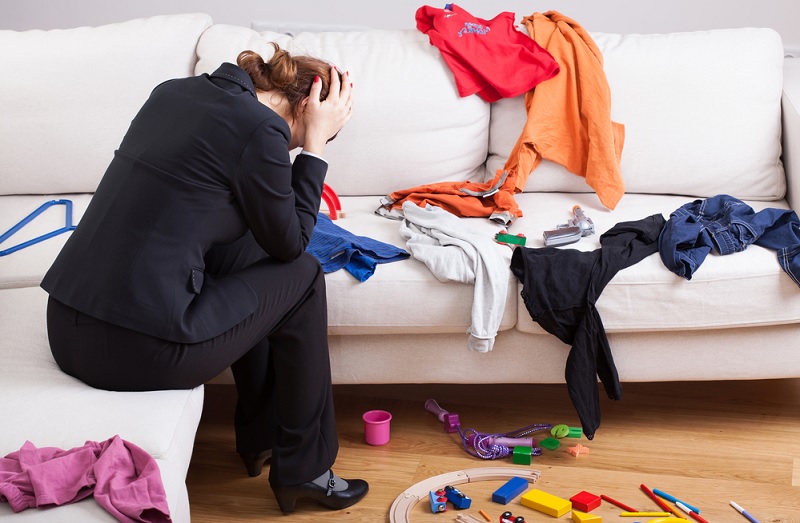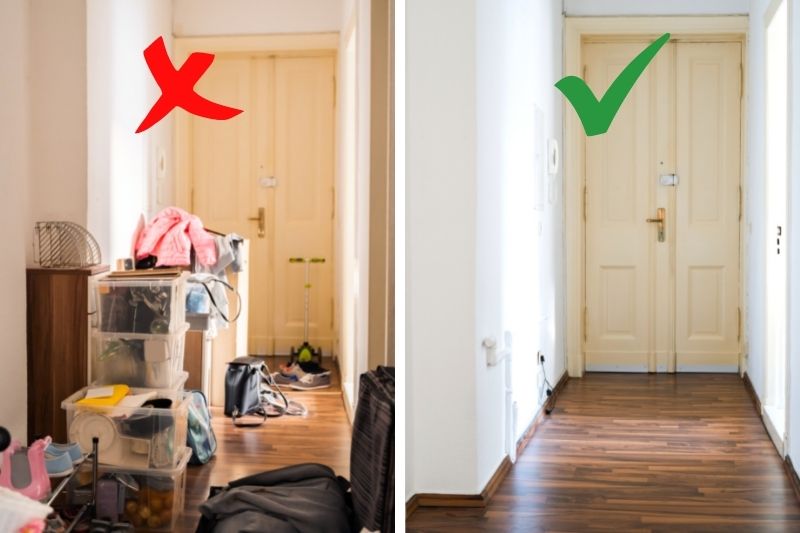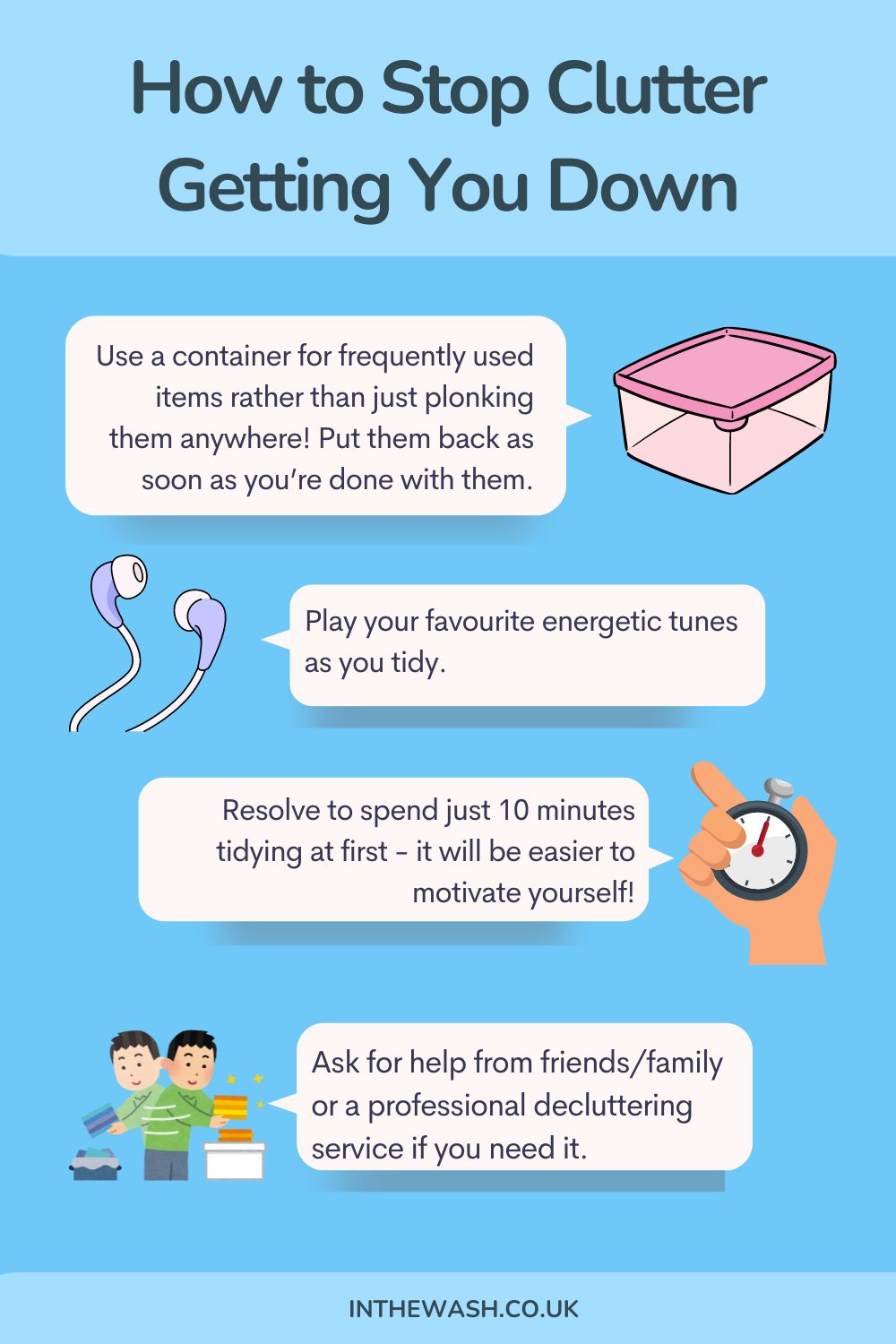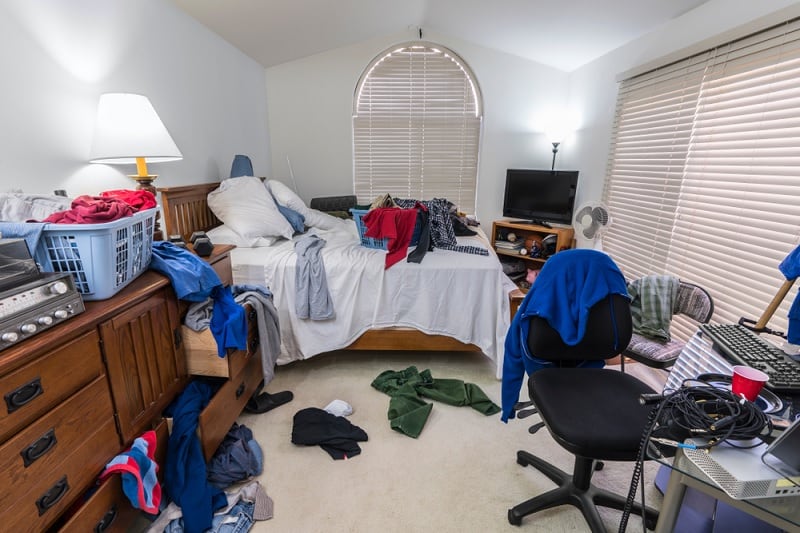Home should be a relaxing place where you can unwind and shed the stress of everyday life. But a messy home can add to that stress, making conditions such as depression worse.
Household clutter is difficult to face when you’re depressed, and it can become an added drain on your mental resources and make negative feelings worse.
A messy and disorganised space can make you feel less in control and therefore less happy. This mess can stress your brain out, and many experts believe that the brain thrives on order.
Living in a tidy and orderly place can help alleviate your brain of any extra unnecessary stress that a messy house could create.
Furthermore, household mess or clutter can act as a reminder of the fact that there are jobs that still need to be done, which can in turn make it harder to relax at home.
The added stress from knowing there are jobs to do can lead to disrupted sleep patterns according to some experts, and one study found that people find harder to sleep in cluttered bedrooms.
This point is further exaggerated by the fact that a messy space can create anxiety and guilt which can further aggravate any existing depression.
This feeling of anxiety is partly driven by not knowing how much time and effort it would take to clean up the space.
Can a Messy House Cause Depression?
A 2020 review published in BMC Public Health found a link between “household chaos” and depression, but it’s not clear whether a messy house could actually be a cause of depression or if it’s simply a symptom.
There hasn’t been a lot of research into the direct relationship between household tidiness and depression, but it’s easy to see how a messy house could make you feel overwhelmed or reduce your enjoyment of life.
Here are a few ways a messy house could contribute to depression:
- Overstimulation – A cluttered house could make it harder for you to relax and think clearly, as it would overstimulate your visual system.
- Overwhelm – A messy house could make you feel overwhelmed and defeated, as cleaning and tidying it would be such a big task.
- Embarrassment – An untidy house could make you feel ashamed or embarrassed, and could put you off inviting other people round, affecting your social life.
- Makes your home a less pleasant place to be – Having an untidy house could reduce your enjoyment of your home, and make it feel less like a relaxing safe haven.

How to Stop Clutter Getting You Down
Here are a few tactics that can reduce the space and also help improve your mental health.
- Put things back where they were found immediately. This can seem like a small thing to do but once it becomes a habit your house will become tidier without you even realising!
- Play your favourite energetic tunes as you tidy. This too can seem like it will have little effect but by playing your favourite songs that you enjoy singing to, can make you associate the process of cleaning as something fun. Singing is also a great way to boost your mood as you feel as though you’re releasing energy.
- Put frequently used items in a container. Providing a space or container for items that you frequently use is incredibly useful in making sure you get into the habit of cleaning. Having a container for things like pens or important papers reminds you to return them to where they came from rather than simply leaving them on a table.
- Resolve to spend just 10 minutes tidying at first. You might not be able to face tidying the whole house, but you can probably manage to tidy for 10 minutes. Putting a time limit on how long you’ll spend tidying makes it much less overwhelming. You’ll be surprised at how much you can get done in 10 minutes, and once you’ve started, you’ll probably want to keep going.
- Ask for help. Decluttering your home on your own can seem overwhelming. If you have a tendency to hoard it gets even harder, as you don’t want to get rid of things. Asking a friend or relative to help is a good idea as they will encourage you to let go of things you no longer need and make the whole process quicker. You can also consider hiring a decluttering service.

Conclusion
Having a messy house is unlikely to cause depression on its own, and is more likely to be a symptom of depression than a cause.
However, having a messy house doesn’t necessarily mean you’re depressed, even if it does get you down from time to time.
Depression is a complex issue, so we recommend seeking professional help if you suspect you’re suffering from it.


In The Wash is your guide to the best laundry and cleaning products, tips and tricks. Our mission is to solve the UK’s cleaning and laundry dilemmas!






